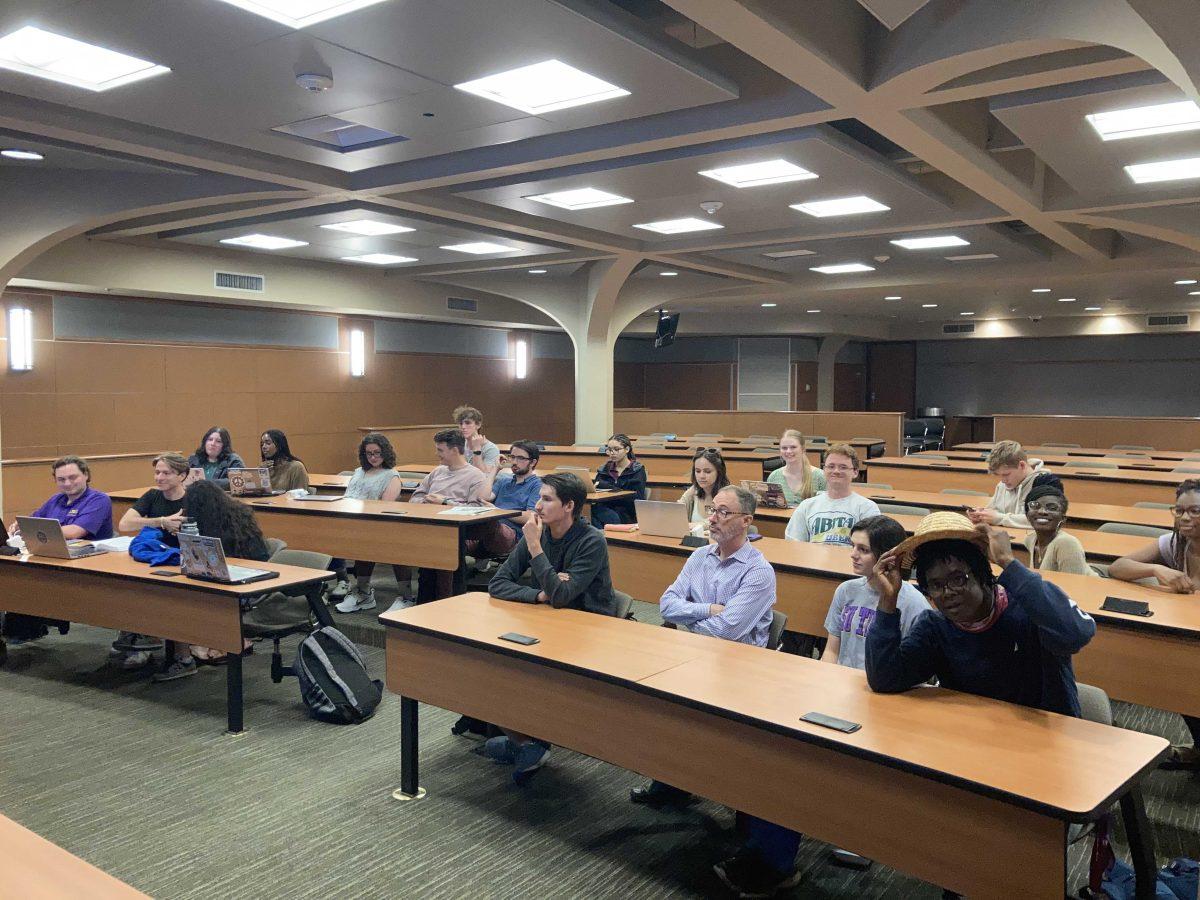LSU students debated whether the drinking age should be lowered to 18 on Monday in the capital chamber room in the Student Union for BridgeLSU’s first in-person event since the COVID-19 pandemic.
BridgeLSU is a student organization that aims to bring healthy political debate to LSU.
Partnering with BridgeLSU and leading the debate was Chandler Skinner. Skinner is a program associate at the public discourse and debate program at Braver Angels, which organization has conducted 85 debates with over 4,000 students in participation and over 15 debates this semester.
The debate followed light parliamentary procedure and allowed speakers in opposition and support of lowering the drinking age to speak at the front of the room, where students could ask the speaker questions on their stance.
Political science senior Landon Pettigrew was the first speaker in favor of lowering the drinking age to 18.
“Twenty-one is really arbitrary,” Pettigrew said. “At 18, you can vote. You can go to war. You can die. You can take out hundreds of thousands of loans, might as well be able to drink. That kind of seems a weird thing to stop on.”
Pettigrew also pointed out that many college students under the age of 21 already consume alcohol.
Senior Rehm Maham, president of BridgeLSU, was the first speaker against lowering the drinking age to 18. He said lowering the drinking age means high schoolers will have more access to alcohol and more opportunities to provide alcohol to young teenagers.
“We know high schoolers will drink,” Maham said. “I’m sure some folks did drink in high school, potentially to excess. We don’t need to have 16-year-olds who just got their driver’s license with friends with access to alcohol.”
Political science freshman Landon Zeringue asked Maham if he supports lowering the drinking age to 19 in order to avoid alcohol access to high schoolers. Rehm said it was a “much better argument,” and that he believes it will better reduce negative impacts such as the number of fake IDs.
Zeringue stood to speak in proposition of lowering the drinking age and acknowledged his bias toward the topic, growing up in the state of Louisiana where drinking is often embraced and part of celebration.
“There is a certain culture in Louisiana, which is a way to put it,” Zeringue said. “I mean we are the only state with daiquiri drive-through shops. It actually surprised me the first time I went out of state and realized, ‘Huh, they don’t do that anywhere else.’”
Zeringue wants to see better education programs than the Drug Abuse Resistance Education Program, which is a comprehensive drug and violence prevention education program founded in 1983 for children enrolled in K-12. As a student who was enrolled in the program, Zeringue believes the program does more harm than good.
“I wonder if there is a different way of looking at this to where is the better solution fixing the education problem rather than trying to get a bunch of teenagers to listen to you,” Zeringue said. “That’s where the base of my argument is.”
Political science and international studies freshman Lailah Williams believes having other responsibilities at 18 doesn’t mean 18-year-olds have the maturity to handle drinking. She pointed out that many 18-year-olds don’t vote. In the LSU 2021 SG presidential election, 14% of students voted.
According to the United States Census Bureau, a little over half of 18-to-24-year-olds voted in the 2020 presidential election, which was the lowest voter turnout age group of that election.
This was the club’s first in-person event since the start of the COVID-19 pandemic. It’s a lot easier to walk into a room than hop on Zoom, Maham said, and certain jokes don’t land the same way when events aren’t in-person.
“Having these kinds of spaces for respectful disagreement is something colleges are supposed to hold sacrosanct, and yet we see time and time again that these spaces don’t exist,” Maham said. “Spaces like this are so few and far between at LSU, so we’re happy to be one.”




